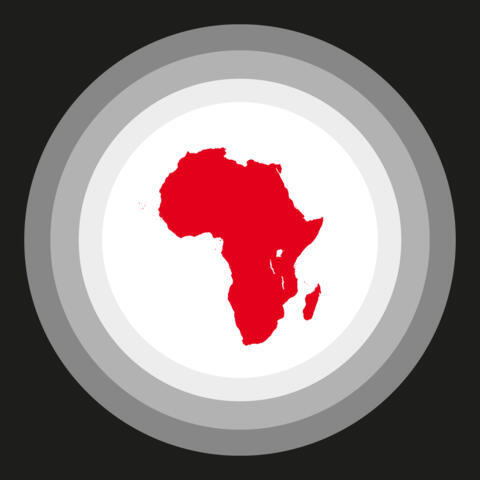Why news need to improve and to tone down US focus
As the new government sets in Washington, with rapid measures promoting conservatism and openly praising fascist ideas, it's more than ever time to see solutions from the rest of the world.
Dear readers,
In November 2020, I wrote a piece about the US elections for the Bylines Network, and about how the Western press (British in particular) over-covered of the USA at the exclusion of so many important issues worldwide…
And it’s uncanny how relevant this piece still is for November 2024 and thus for 2025.
As a journalist who has worked on foreign affairs since 2005, it has for long seemed obvious to me that this hyper-focus on the US has intensified and become a burden. I even think it’s harmful, as the country can no longer be considered as a model or an ally.
The problem with this sort of journalistic coverage of America is that it focuses mostly on the powerful, therefore on the white upper class in power and erases space for others, especially the rest of the world. And this attitude only empowers further these powerful ones.
Now that even former President Joe Biden called the US an oligarchy, now that the super-billionaires and the tech industry have allied with Donald Trump and with fascist ideology, how could we let our editors continue down this road?
I always thought that journalism that only reports what people in power state is a journalism in danger of dying…
Remember the words of George Orwell?
“Journalism is printing what someone else does not want printed: everything else is public relations.”
This should make all of us think twice before publishing any story leading with “Trump says” (or “Macron says” or “Starmer wants”), especially us, public broadcasters.
The reason why I decided myself to be based in the USA in 2008 was that I could see that this obsession for a US-centric world, but I already thought it should change.
I went to Florida because I also wanted to work on the US’s relations with the Caribbean, especially Cuba and Haiti.
Before that, I had been covering a mix of US, European and Middle Eastern news, mostly, African when it was given a chance to be on the news bulletin...
Then I was hired by the BBC World Service in 2009, and started focusing on African affairs. I loved it because I love Africa, care about its future and know of its past too well (I had worked on Africa-themed documentary films). But also because it is the most under-reported zone in the world. By far.
To see the world between New York, Washington DC and London makes no one more able to understand the world we live in, especially after the Covid pandemic (which means a GLOBAL epidemic!), and the current acute climate crisis.
Our news should not be driven only by the most economically and diplomatically powerful. It automatically weakens democratic principles.
Also, the American model, which claimed to be a democratic inspiration for the world after WWII, has become increasingly toxic (in the metaphorical sense) and highly polluting (literally).
Now it’s entering a fascist era.
And who could say that the western mainstream media predicted it? Let alone prevented it…
How to explain?
Looking at known journalists, I could see in 2020 why this trend still dominated. Is it better now? Slightly… The world has Al Jazeera and great Arab-world-focused media reporting in English. But the BBC and some others have only done worse, with budget restrictions, much worse.
It’s due to laziness too, in part. British media read the American press every day; French ones translate wires from the US. The largest news agencies are AP and Reuters. The rest all just follow their trends.
It’s much harder to cover 54 states in Africa, or to understand the causes of the multi-faceted crises in Gaza, Iraq or Lebanon.
It’s also much more challenging to try to explain the roots of islamophobia in France, the influence of its dark colonial past, and to decry the way some western governments are weaponising the death of innocent people in terrible attacks to compete with the far right in xenophobic and stereotyping discourses that help neither the educators nor the health workers.
But this journalistic choice has stark implications
One example in 2020 was that only The Times of India had reported that, on the US elections day, Israel razed most of a Palestinian Bedouin village in the West Bank, quoting the press agency Reuters as the source.
Other publications in the Western world just ignored this fact.
We can see now how the coverage of the Gaza war has been impacted by this trend…
Meanwhile, urgent talks about the climate emergency have been side-tracked, and the headlines about the environment get the small share.
Same interrogations about decisions on nuclear disarmament are hardly addressed…
What about the future of journalism?
Between September 2019 and June 2022, I was teaching journalism, in England, on top of practicing it.
And many of my students were foreigners, from China, India, Malaysia, Oman, Egypt, Bulgaria, Czech Republic, the Netherland, etc.
I didn’t want to contribute to reproducing this cycle. I encouraged them to think globally. Now, one of my former students, Palestinian American, is reporting from Bethlehem, and she makes me proud. Another one is studying international law.
The consequences of the latest US elections affect the whole world, so we urgently need to rethink our foreign affairs in the news.
The greatest powers of today could actually be seen as Russia (a country that has influenced deeply both the US elections and the Brexit referendum, as the Cambridge Analytic scandal revealed); China; India; Brazil; Nigeria; Turkey.
And the rest of Africa and Asia should matter equally too.
The domination of American politics over the rest of the world, especially in Europe, is man-made, by white, male, business-oriented men, as I wrote in November 2020. Four years later, this has only become more obvious!
We give power to what we focus on.
And during the American campaigns, most media gave all their attention to the candidate Donald Trump. In 2016, in 2020, and again in 2024.
Even now the media gives too much attention to male bullies who took too much power, against the law, and none to opponents or divergent solutions.
It’s time for a radical shift
I think it is high time to refocus on “others”, whether women, unelected people, so-called ‘minorities’, LBGT+ people, oppressed and unfairly treated people. And to give them a voice as they lose some of their rights.
The ones called ‘minorities’ in UK, France or in the USA, are the vast majority in the whole world… Asians and Africans.
As a journalist who has spent most of her 20-year career in public broadcasting, working with the values of public service in mind, I see how much the world has changed, and the domination of the few over the many cannot live on. Even in the media.
The world is vast and includes more than 200 countries.
If the western way of thinking has defined the way we see and describe the planet for decades, if not centuries, the “rest of the world” is definitely ready for a change.
Some people who agree
“Actually, it’s not even ‘Why American?’. More accurately, it’s ‘Why is media and tech dominated by young males mostly based in California?’” - Jack Shillito
In: American Made: Why Does America Dominate in Media & Tech?
“Globalization within a multipolar order will increasingly favour regional autonomy and a struggle to define a new balance of power.” - Daniel Araya
“Western diplomacy has tied itself in knots over Israel. It may herald the end of Western dominance on the global diplomatic stage.” - Alanna O’Malley, Leiden University
“By seemingly giving carte blanche to Israel, the EU has sacrificed hard-won credibility with civil society in Africa, Asia and the Middle East”
Europe’s Gaza betrayal has broken the trust of millions of people in the global south - Shada Islam, in the Guardian
Podcast
As I currently cover Africa and parts of South West Asia, I keep an eye on journalists bringing a deeper coverage of Asia and Latin America.
For now, some important African and global angles:
Africa’s changing diplomacy as G20, Ecowas divisions and new global alliances loom
In this edition of the Spotlight on Africa podcast, experts and analysts delve into Africa's evolving diplomacy as the continent approaches 2025. Topics include South Africa's G20 leadership, the division within the West African bloc ECOWAS, and emerging partnerships with the US and China.
Listen from RFI’s website here: https://www.rfi.fr/en/podcasts/spotlight-on-africa/20250122-africa-s-changing-diplomacy-as-g20-ecowas-divisions-and-new-global-alliances-loom
Or from Apple Podcast.
Finally, on a brighter note
‘Cartographies for Another Time’
I went to Centre Pompidou Metz this week, for a visit with art journalists, RFI colleagues, and - guest star - Madrid-born curator Manuel Borja-Villel for the opening of an exhibition titled ‘After The End - Cartographies for Another Time’.
And it resonates with this post, so let’s end this way.
It is a beautiful, global, inspiring exhibition bringing about a post-colonial dialogue from the Atlantic to the Mediterranean, and pretty much everywhere else in between, from Mexico to Brazil, Berlin to Madrid.
The show curated by Borja-Villel brings together the work of 40 international artists, and seeks to question the Western narrative rooted in a colonial system. It proposes other stories instead, which are new or ancestral, popular or modern, from mainly two parts of the world: The Caribbean and the Mediterranean, but it also include other parts of our global system.
The exhibition is organised not around themes, geographical areas or chronologies, but around the commonalities between the artists, who stem from different diaspora and question the limits of modernity’s intelligibility. One of the aims is to highlight the importance of communities.
The team thus hoped us to help imagining other worlds both “beyond the end of time” and “beyond our own time”, and to reconsider the devalued, old or abandoned ideas and ideals which could be useful to foster the new.
I interviewed the curators and some artists.
Here is a visual insight:
More soon, including an article and another video...
Dear friends,
thanks for reading and listening, if you have time!
As always, feedback and reposts are welcome.
Speak soon,
melissa
-
Melissa Chemam
Journalist & Writer
Blog: https://melissa-on-the-road.blogspot.com/
YouTube channel: https://www.youtube.com/@MelissaChemam






